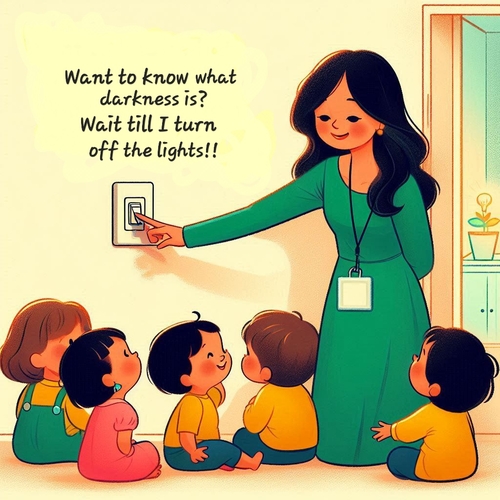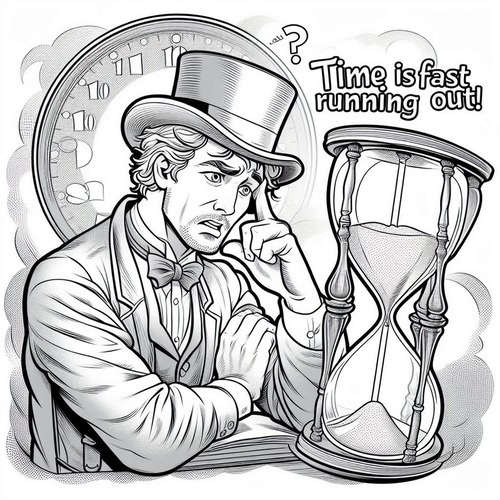The Outer Darkness: What Did Matthew Mean?
REFORMED PERSPECTIVES ON MATTHEW 8:12, 22:13, 25:30
Few phrases in Scripture carry more chilling weight this repeated warning from Jesus about “outer darkness.” Three times in Matthew’s Gospel, our Lord uses this haunting expression to describe the final destiny of those who reject His kingdom. For nearly two millennia, these words have sparked both terror and theological debate. What exactly did Matthew mean by “outer darkness”?
THREE CRUCIAL PASSAGES, ONE UNIFIED MESSAGE
Matthew 8:12 presents the first occurrence: Jesus marvels at a Roman centurion’s remarkable faith but condemns Israel’s unbelief: “The sons of the kingdom will be thrown into the outer darkness. In that place there will be weeping and gnashing of teeth.” Here, ethnic privilege crumbles under the demand for genuine faith. Those who assumed their Jewish heritage guaranteed salvation discover God’s election transcends bloodlines.
In Matthew 22:13, the parable of the wedding feast culminates with a guest being cast out for lacking proper wedding attire: “Bind him hand and foot and cast him into the outer darkness.” This man represents those who presume to enter God’s kingdom on their own terms, without the wedding garment of Christ’s righteousness. External religious participation cannot substitute for heart transformation that accompanies saving faith.
Matthew 25:30 concludes Jesus’ parable of the talents with the condemnation of an unfaithful servant: “Cast the worthless servant into the outer darkness.” True faith, Jesus teaches, inevitably produces faithful stewardship. The servant’s burial of his talent reveals the absence of saving grace, demonstrating that works serve as evidence, not the cause, of salvation.
THE NATURE OF OUTER DARKNESS
What is this outer darkness that Jesus describes with such gravity? Reformed theology understands it as both spatial and relational separation—not merely a location, but a state of complete exclusion from God’s presence and kingdom. The imagery deliberately contrasts with the “inner” fellowship enjoyed by kingdom citizens.
This aligns perfectly with Paul’s description in 2 Thessalonians 1:9, where the wicked face punishment “away from the presence of the Lord and from the glory of his might.” Outer darkness represents existence cut off from the source of all light, truth, and goodness.
The biblical theology of light and darkness illumines this reality. Scripture declares “God is light, and in him is no darkness at all” (1 John 1:5). Jesus identified Himself as “the light of the world” (John 8:12). Outer darkness, therefore, represents the natural consequence of rejecting the Light of the World—existing in the sphere where God’s light does not penetrate.
The accompanying “weeping and gnashing of teeth” indicates conscious awareness and eternal regret. Reformed theology consistently rejects annihilationism, maintaining the punishment matches the crime—rebellion against an infinite God merits infinite consequences.
REFORMED THEOLOGICAL INSIGHTS
These passages powerfully illustrate core Reformed doctrines. Divine sovereignty in salvation emerges clearly—those cast into outer darkness were never truly “sons of the kingdom” despite their presumptions. They represent the non-elect who, apart from God’s regenerating grace, inevitably reject Christ. As Scripture declares, “None is righteous, no, not one; no one seeks for God” (Romans 3:10-11).
The absolute necessity of regeneration shines through each of the three passages. External religious forms prove insufficient. The wedding guest’s eviction demonstrates participation in religious activities without the “wedding garment” of Christ’s imputed righteousness leads to destruction. True saving faith, evidenced by faithful works like the profitable servants, stems only from divine grace working within the heart.
These warnings also vindicate God’s perfect justice. His absolute holiness demands punishment for sin. The cross demonstrates both divine justice and mercy—Christ bore the punishment that would otherwise drive sinners into outer darkness, while God’s righteousness remained uncompromised.
THE OUTER DARKNESS: GOSPEL HOPE
Rather than inspiring despair, these sobering passages should drive us to the cross with renewed urgency. They underscore the reality of eternal judgement and the desperate need for clear gospel proclamation. We must warn against false assurance based on external religion, ethnic heritage, or assumed divine favour.
Yet for genuine believers, these passages offer profound comfort. Those united to Christ by faith need never fear outer darkness. Our assurance rests not on our performance but on Christ’s finished work. The security of God’s elect remains unshakeable because our salvation depends entirely on divine grace, not human effort.
Perhaps most importantly, outer darkness highlights the stunning glory of divine grace. Every believer deserves that terrible fate but instead receives the inner light of God’s kingdom. We who once walked in darkness now walk in marvellous light—not due to our seeking, but because the Light of the World sought us.
THE URGENCY OF TODAY
Matthew’s teaching on outer darkness confronts us with ultimate realities. It represents eternal separation from the source of all joy, peace, and blessing. This sobering truth should compel both urgent evangelism and heartfelt worship.
The choice remains before every person: embrace Christ as the Light of the World, or face the outer darkness that our rebellion deserves. For those who’ve fled to Christ, these passages remind us why we sing with such gratitude: “Amazing grace, how sweet the sound, that saved a wretch like me. I once was lost, but now am found, was blind, but now I see.”
The outer darkness is real. But so is the Light that overcomes it.
THE OUTER DARKNESS: RELATED FAQs
Why does Matthew use the phrase, “the outer darkness” while other Gospel writers don’t? Matthew’s unique emphasis on “outer darkness” aligns with his Jewish audience and kingdom theology. DA Carson notes Matthew consistently contrasts the “inner” fellowship of God’s kingdom with the “outer” realm of exclusion. This terminology would resonate powerfully with Jewish readers familiar with temple imagery, where proximity to God’s presence determined one’s spiritual status.
- Does “outer darkness” refer to different degrees of punishment in hell? Most Reformed theologians, including John Calvin and RC Sproul, maintain that while Scripture suggests degrees of punishment (Luke 12:47-48), “outer darkness” describes the general state of all the damned rather than a specific level. The phrase emphasises separation from God’s light and presence, which all unbelievers experience regardless of the intensity of their individual torment. The “weeping and gnashing of teeth” indicates conscious suffering but doesn’t necessarily imply varying degrees among the lost.
- How do we interpret the “sons of the kingdom” being cast out in Matthew 8:12? Reformed theologians John MacArthur and Sinclair Ferguson interpret “sons of the kingdom” as those who presumed salvation based on covenant privilege rather than genuine faith. Calvin emphasised this doesn’t refer to true believers losing salvation, but to those who had external covenant relationship without internal regeneration. This supports the Reformed doctrine of perseverance—true sons cannot be cast out because their sonship rests on divine election, not human presumption.
What’s the significance of being “bound hand and foot” before being cast into outer darkness in Matthew 22:13? The binding imagery in the wedding feast parable represents the complete helplessness of the condemned. Reformed scholar William Hendriksen explains this demonstrates divine justice—the improperly dressed guest is rendered unable to resist or escape his fate. This supports the Reformed understanding that salvation must occur in this life; there’s no opportunity for repentance after death, as the binding signifies final, irreversible judgement.
- How does our view of “outer darkness” differ from Catholic purgatory or Orthodox apokatastasis? Reformed theology rejects both purgatorial purification and universal restoration, viewing outer darkness as eternal and irreversible. Unlike Catholic teaching that allows for post-death purification, Reformed scholars like Louis Berkhof argue “outer darkness” represents final judgement with no possibility of redemption. Against Orthodox universalism, Reformed theology maintains God’s justice requires eternal punishment for those who reject Christ, making outer darkness permanent separation rather than temporary correction.
- Could “outer darkness” be metaphorical rather than describing a literal place? While the Reformed perspective acknowledges the metaphorical nature of much eschatological language, it insists on the reality behind the metaphor. John Frame argues that whether outer darkness describes a literal location or state of being, it represents genuine, conscious, eternal separation from God. The metaphorical language doesn’t diminish the reality—it helps finite minds grasp infinite consequences. Reformed theology emphasises that Jesus used the most severe language available to warn us of the very real judgement.
How do we address the apparent tension between God’s love and casting people into outer darkness? We resolve this tension by distinguishing between God’s common grace and saving love. RC Sproul explained that outer darkness demonstrates perfect justice, not the absence of love—God’s love for His holiness requires punishment of sin. John Piper adds God’s casting people into outer darkness actually magnifies His love for the elect, showing what they deserved but didn’t receive. Calvin believed God’s justice in condemning rebels serves His love for righteousness and His chosen people.
THE OUTER DARKNESS: OUR RELATED POSTS
Editor's Pick

Why Do People Hate the Doctrine of Election?
…WHEN THEY REALLY SHOULDN’T Few Bible doctrines provoke stronger reactions than election. The idea that God chose some for salvation [...]

The Doctrine of Providence: Does God Really Govern All Things?
You’re sitting in the doctor’s office when the diagnosis lands like a thunderclap. Your mind races: Why this? Why now? [...]

No Decay, No Defeat: What It Means That Christ’s Body Saw No Corruption
On the Day of Pentecost, Peter stood before thousands and made a startling claim: David's body decayed in the tomb, [...]
SUPPORT US:
Feel the Holy Spirit's gentle nudge to partner with us?
Donate Online:
Account Name: TRUTHS TO DIE FOR FOUNDATION
Account Number: 10243565459
Bank IFSC: IDFB0043391
Bank Name: IDFC FIRST BANK






